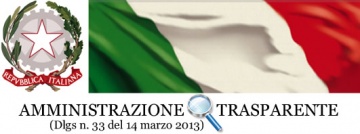"Electrochemical (bio)sensors enhanced by smart materials"
Department of Pharmacy, University of Naples “Federico II”
ABSTRACT
Despite substantial advances in sensing technologies, the development, preparation, and use of self-testing devices is still con ned to specialist laboratories and users. Decentralized analytical devices will enormously impact daily lives, enabling people to analyze diverse clinical, environmental, and food samples, evaluate them and make predictions to improve quality of life, particularly in remote, resource-scarce areas. In recent years, paper-based analytical tools have attracted a great deal of attention; the well-known properties of paper, such as abundance, a ordability, lightness, and biodegradability, combined with features of printed electrochemical sensors, have enabled the development of sustainable devices that drive (bio)sensors beyond the state of the art. Their blindness toward colored/turbid matrices (i.e., blood, soil), their portability, and the capacity of paper to autonomously lter/purge/react with target species make such devices powerful in establishing point-of-need tools for use by non-specialists. Depending on analytical requisites, di erent types of paper ( lter, o ce) and con gurations (1D, 2D, 3D) can be adopted. A wide overview regarding application ranging from DNA to heavy metals, through pesticides detection will be provided, with the aim in showing the potentialities of paper-based electrochemical biosensors for improving society involvement in monitoring. In addition, a novel approach is reported. The use of a disposable pipette tip, opportunely con gured, represents the rst example of lab-on-a-tip. The combination of a pipette tip, wire electrodes, and cotton wool lter, highlights the suitability of producing a novel electroanalytical platform that does not require expertise-required tasks. The talk is aimed to provide general basis regarding the development of smart electrochemical and optical strips for multiple applications. However, it should be noted that the term “paper” is too general: chromatographic paper, o ce paper and nanocellulose are only some of the paper-based substrates that can be exploited. The main question from non-experts is: which kind of support should I use? The best answer is “it depends”! Answers depend on the application and the analytical need.
Host: Anna Chiara De Luca (
Conference Room, CNR, P. Castellino Campus


